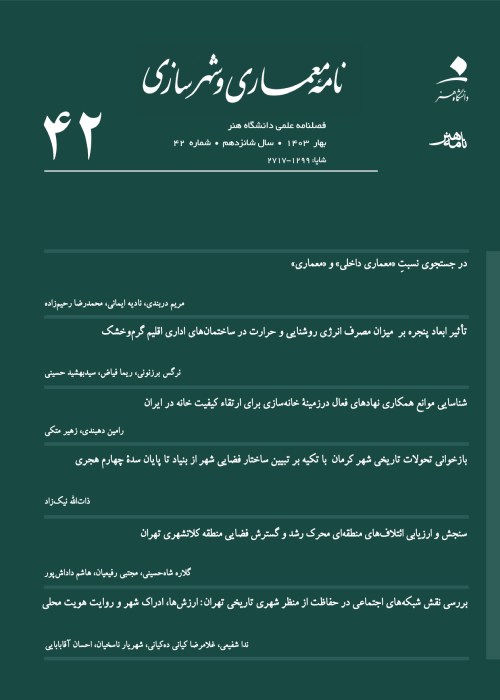Methodological Challenges of Studies on the Relationships between Built Environment and Obesity
The prevalence of obesity and non-communicable diseases has become one of the serious concerns in Iran due to lifestyle changes such as reduced physical activity and consuming high-calorie foods. At the same time, the role of the built components of the environment in increasing physical activity, creating a healthy food environment, and thus reducing obesity has attracted increasing attention from decision-makers and researchers. However, after two decades of focused international efforts to find the links between built components and health variables, there are serious ambiguities about the results of these studies. In this regard, the present article has tried to provide these ambiguities as a circle of challenges in the form of a research agenda concerning theoretical and experimental gaps on this issue in Iran. A narrative review has also been used in this study. Narrative reviews are generally comprehensive and cover a wide range of issues on a particular topic, but do not necessarily follow clear rules of search and analysis. Systematic reviews focus on questions, and their main contribution is to summarize the data, but narrative reviews seek to interpret and critique the data, and their main goal is to gain an in-depth understanding of the subject. A variety of databases and search engines such as Google Scholar, PubMed, Scopus and Web of Science have been used to find the articles. Chosen articles were selected based on the subject, the number of citations and the novelty of the findings. Various studies have shown conflicting findings that make it is difficult to reach solid conclusions about relationships and turn them into policies. An important part of these ambiguities stems from a series of methodological challenges that undermine the findings of the studies and eliminate the possibility of an analogy between the results. Accordingly, this section refers to the classification of the most important of them. Findings show inconsistencies between objective and perceptual criteria, ambiguity in the definition of neighborhood unit, unreliability and validity of self-selection of residential units, mediating variables and ignoring the displacement of the target group and the dominance of cross-sectional studies. It makes it difficult to draw sound findings that can provide strong theoretical underpinnings for translating them into strategic policies. To complement the results of this study, it is necessary to provide a research agenda for better understanding, creating theoretical support, and its empirical application in the country. From this perspective, redefining the neighbourhood unit in terms of adaptation to the daily activity environment in different climates and cultures in a comparative way can greatly facilitate the comparison of findings and the possibility of achieving a consensus on hypotheses. Secondly, recording and updating various spatial and physical changes of cities in parallel with Cohort research at the same time intervals on individuals could be effective for clarifying the causal relationship, the effectiveness of interventions and develop clear and strategic guidelines for designing and planning different neighbourhoods. It is also recommended that conducting "health impact assessment" in local plans and measuring the "burden of disease" on the urban scale, could support the establishment of institutional and constitutional frameworks in the country's urban policies.
- حق عضویت دریافتی صرف حمایت از نشریات عضو و نگهداری، تکمیل و توسعه مگیران میشود.
- پرداخت حق اشتراک و دانلود مقالات اجازه بازنشر آن در سایر رسانههای چاپی و دیجیتال را به کاربر نمیدهد.



